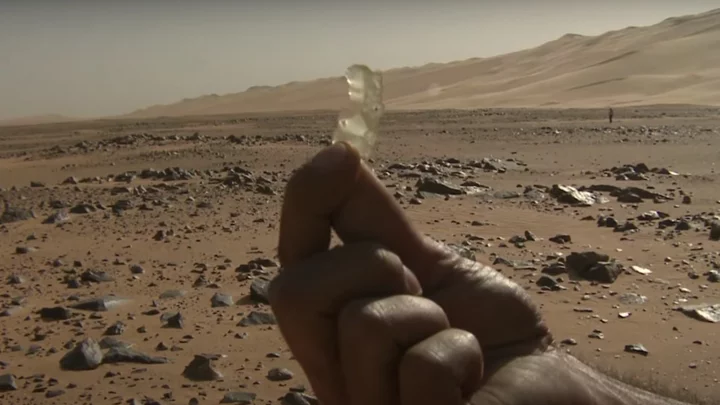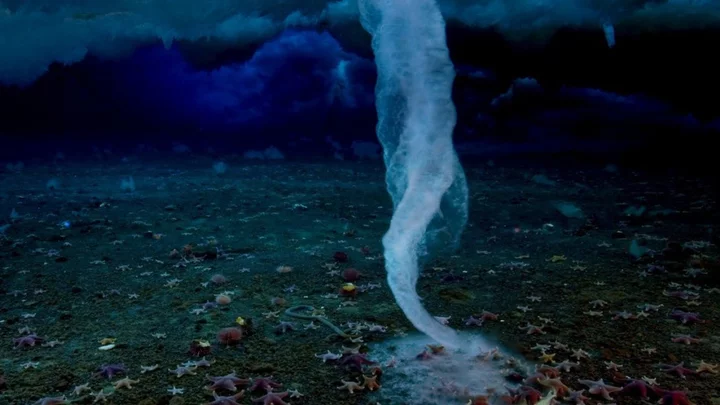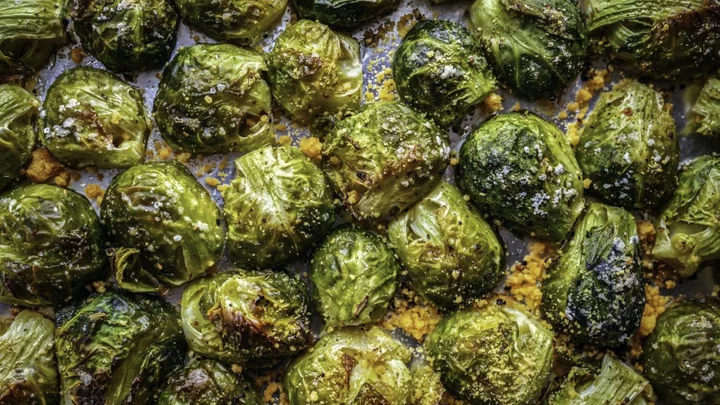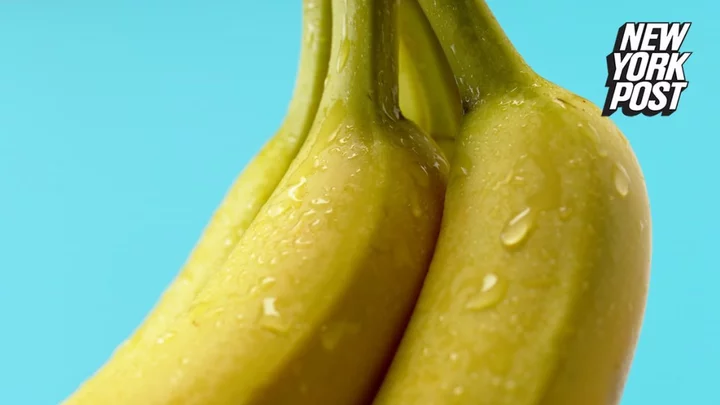
TikTok takes first steps in turning on Norwegian data centre
By Victoria Klesty HAMAR, Norway TikTok has taken possession of a facility in Norway built by data centre
2023-12-01 06:46

Musk says antisemitic tweet was ‘foolish’ – but blames media for angry reaction
Elon Musk has admitted that his endorsement of an antisemitic conspiracy theory on his social media site X, previously known as Twitter, was a “mistake” and “one of the most foolish” things he had done on the platform. The world’s richest man said he had “no problem being hated” but also blamed members of the media for much of the outrage surrounding the post, which is thought to have contributed to major investors in the platform pulling funding. Earlier this month, Mr Musk responded to a Twitter/X user who accused Jewish people of hating white people by saying it was “the actual truth.” His actions sparked global outrage, with several world leaders condemning his endorsement of the conspiracy theory. Speaking at the New York Times’ Dealbook Summit this week, Mr Musk discussed the post and said that the outrage caused was “not my intention”. “[It was] one of the most foolish — if not the most foolish — thing I’ve done on the platform,” he said. “I should in retrospect not have replied to that one person and should have written in greater length what I meant,” he said. “But those clarifications were ignored by the media and essentially I handed a loaded gun to those who hate me and arguably to those who are antisemitic. And for that I’m quite sorry, that was not my intention.” Earlier this week, Mr Musk visited Israel and toured a kibbutz attacked by Hamas, meeting with Israel’s prime minister Benjamin Netanyahu. The pair visited the Kfar Aza kibbutz, which Hamas attacked on 7 October, killing an estimated 52 residents. Another 20 people are reported as missing. Mr Musk said witnessing the scenes of the massacre was “jarring”, during a live event on Twitter/X with Mr Netanyahu after the tour. Speaking at the Dealbook Summit, he denied that the visit had been – as some had described it – an “apology tour”. “[The trip to Israel] wasn’t in response to that at all,” Mr Musk said, adding: “I have no problem being hated.” Mr Musk later went further, addressing companies that had pulled marketing from X over concerns related to far-right content and accusing them of “blackmail”. “Don’t advertise,” he said at the New York Times’ Dealbook Summit. “If someone is going to try to blackmail me with advertising, blackmail me with money? Go f*** yourself. Go f*** yourself. Is that clear? I hope it is.” Read More Elon Musk believes OpenAI may have made ‘dangerous’ discovery OpenAI may have made a ‘dangerous’ artificial intelligence discovery, Elon Musk says Elon Musk publicly tells advertisers to ‘go f*** yourselves’ Elon Musk mocked for trying to resurrect QAnon Pizzagate conspiracy Elon Musk set to meet Netanyahu and hostage families in Israel Elon Musk weighs in on Dublin riots claiming country’s PM ‘hates the Irish people’
2023-12-01 04:54

Fortnite Chapter 5 Countdown
Here's the Fortnite Chapter 5 countdown to see how many more days until the next Fortnite Chapter drops on Sunday, Dec. 3, 2023.
2023-12-01 04:45

Xbox Talking to Partners for Mobile Store, CEO Spencer Says
Microsoft Corp. is talking to partners to help launch a mobile gaming store that will take on Apple
2023-12-01 04:27

Hubble Space Telescope goes down for third time in a week
The Hubble Space Telescope has gone into “safe mode” for the third time in a week. The ageing, floating observatory – which was launched in 1990, with an expected lifespan of 15 years, and was last serviced by the space shuttle in 2009 – occasionally needs to be fixed from the ground when it runs into issues. This time, Nasa said it had entered safe mode because of an “ongoing gyroscope issue”. The space agency is “working to resume science operations”, it said. The current problems had begun 23 November, it said, and it is still not online. The telescope had been hit with the same issue twice in the days before, when it was also sent into safe mode – but came back online. Nasa said Hubble was otherwise in good health, and that its instruments were stable. It is able to operate with just one working gyroscope, but is less efficient when it does. When the spacecraft was serviced on the fifth and final visit from the space shuttle, in 2009, astronauts installed six new gyroscopes on Hubble. Three of those are still in operation, including the one currently having issues. The gyroscopes are used to aim the telescope around space. They measure Hubble’s turning and help it work out where it is pointing, so that it can be moved around in space. Nasa says that it believes Hubble will continue working, alongside other telescopes such as Webb, “throughout this decade and possibly into the next”. When it is no longer operational, Hubble will re-enter Earth’s atmosphere, though that is not expected to happen until the mid to late 2030s at the earliest. It is expected to have a propulsion system attached to it which will either push it down for a controlled fall into the Pacific Ocean or carry it further up into a higher orbit. Read More Nasa has received a signal from 10 million miles away SpaceX hints next Starship launch attempt could be soon Elon Musk believes OpenAI may have made ‘dangerous’ discovery
2023-12-01 03:18

Celsius Network faces roadblocks in pivot to bitcoin mining
By Dietrich Knauth NEW YORK Crypto lender Celsius Network may have to seek a new creditor vote on
2023-12-01 03:16

How to Watch The Esports Awards 2023
Players can watch The Esports Awards 2023 live via YouTube or Twitch.
2023-12-01 02:24

Mysterious yellow glass found in Libyan desert 'caused by meteorite', say scientists
A meteorite which smashed into earth 29m years ago may be behind a strange yellow glass found in a certain part of the desert in southeast Libya and southwestern Egypt, according to researchers. The Great Sand Sea Desert stretches over about 72,000 square kilometres across the two countries, and is the only place where the mysterious yellow material is found on Earth. Researchers first described it in a 1933 scientific paper, calling it Libyan desert glass. Mineral collectors have long valued it for its beauty and mysterious qualities – and it was even found in a pendant in Egyptian pharaoh Tutankhamun’s tomb. The origin of the glass has been a mystery for centuries, but researchers writing in the journal De Gruyter used new advanced microscopy technology to get answers. Elizaveta Kovaleva, a lecturer at the University of the Western Cape, wrote that the glass was caused by “the impact of a meteorite on the Earth's surface”. Writing in The Conversation, she said: “Space collisions are a primary process in the solar system, as planets and their natural satellites accreted via the asteroids and planet embryos (also called planetesimals) colliding with each other. These impacts helped our planet to assemble, too.” She said: “We studied the samples with a state-of-the-art transmission electron microscopy technique, which allows us to see tiny particles of material – 20,000 times smaller than the thickness of a paper sheet. “Using this super-high magnification technique, we found small minerals in this glass: different types of zirconium oxide (ZrO₂).” One of the types of this mineral found in the glass can only form at temperatures between 2,250 celsius and 2,700 celsius. Toasty. Kovaleva said: “Such conditions can only be obtained in the Earth's crust by a meteorite impact or the explosion of an atomic bomb.” However, she wrote, there are just as many questions as there are answers. The nearest known meteorite craters are too far away and too small to be the cause of that much glass all concentrated in one part of the world. “So, while we've solved part of the mystery, more questions remain. Where is the parental crater? How big is it – and where is it? Could it have been eroded, deformed or covered by sand?” Safe to say, the scientists will keep on looking until they have the answers. How to join the indy100's free WhatsApp channel Sign up to our free indy100 weekly newsletter Have your say in our news democracy. Click the upvote icon at the top of the page to help raise this article through the indy100 rankings.
2023-12-01 02:17

Terrifying 'ice finger of death' killing everything it touches caught on camera
Life forms surviving under sea ice have it pretty tough at the best of times, but they face a threat rarely caught on camera which is as terrifying as anything on the planet. BBC crew captured a brinicle on film for the first time for the BBC series Frozen Planet in 2011 and the natural feature resembling a deathly ice finger is the stuff of nightmares. A brinicle forms under sheets of sea ice, pushing downwards and posing existential risks to life forms on the ocean floor. As shown in footage captured for BBC Earth Unplugged, the natural formations can trap creatures and prove deadly – but how do they form? Well, salty water surrounding sea ice can form channels and inlets within blocks of ice. Ice then protrudes through the salty water and heads downwards as the salty water is heavier than the water around it. The salt water also freezes at a lower temperature to the water around it, meaning that it freezes everything it touches as it descends. Safe to say, if you see one of these heading towards you, you’d better start praying. It comes after it was discovered that the world’s biggest iceberg is drifting away from the Antarctic after having been grounded there for more than 30 years. The iceberg, which has the catchy name A23a, split from the Antarctic’s giant Filchner Ice Shelf in 1986, but has been stuck to the ocean floor since shortly after that time. Now, according to the British Antarctic Survey, it is on the move. Sign up for our free Indy100 weekly newsletter How to join the indy100's free WhatsApp channel Have your say in our news democracy. Click the upvote icon at the top of the page to help raise this article through the indy100 rankings
2023-12-01 01:52

There is a scientific reason some people can't stand Brussels sprouts
Christmas is approaching, and that means so are the overcooked, bitter, totally unnecessarily mountains of Brussels sprouts that your family insists on serving. Every, damn, time. Well, that’s how some people might see it, anyway. The fact is, love them or hate them, Brussels sprouts are always going to be controversial – a little like that awkward uncle who rocks up every Christmas and starts a big family row. But it turns out that sprout-haters have actually got a very sound, scientific excuse for their picky eating on Christmas day – and it's all to do with genetics. Stacey Lockyer, nutrition scientist at the British Nutrition Foundation, told Huffpost: “Brussels sprouts are one of a group of vegetables known as cruciferous vegetables or Brassica which also includes broccoli, cabbage, cauliflower and kale. “Brassica contain high amounts of compounds called glucosinolates which, when metabolised in the body, give them their characteristic sharp or bitter taste.” An area covering 3,240 football pitches is dedicated to growing Brussels sprouts in the UK. If you were to line them up individually, they'd stretch from London to Sydney. Despite this, some people are just genetically predisposed to hate that bitter taste. Lockyer added: “Whether we like or dislike certain foods is determined by different factors (such as previous experiences with a food and number of exposures), but some studies have demonstrated that the perception of bitterness of cruciferous vegetables is linked to genetic differences in taste receptors on the tongue.” In fact, a 2011 study by Cornwall College found sprouts contain a chemical which only tastes bitter to people who have a variation of a certain gene. The research found that around 50 percent of the world’s population have a mutation on this gene. About half of us just don’t taste the bitterness usually associated with sprouts, and therefore actually like them. (Imagine!) Nonetheless, hope is not lost. A University of Warwick study found that as we get older, we’re more likely to like sprouts. Research fellow Lauren Chappell said in a blog post: "Sulphur is responsible for the bitter sprout taste. As we age, we lose tastebuds, which can make them more palatable—potentially why adults who hated sprouts as children now embrace them in seasonal dishes.” Which means, regrettably, that your grandparents were probably right all along. How to join the indy100's free WhatsApp channel Sign up to our free indy100 weekly newsletter Have your say in our news democracy. Click the upvote icon at the top of the page to help raise this article through the indy100 rankings.
2023-12-01 01:17

There's a reason why we've never found fire anywhere other than on Earth
Fire might seem like one of the most elemental things in the natural world, but it’s never been found anywhere other than Earth. It’s because the creation of fire relies on very specific circumstances. In fact, if fire was ever found on another planet, it would be a good indicator of the possible existence of life. Oxygen is key to fire, and while it’s particularly prevalent in the universe, Earth’s atmosphere features an abundance of the element in the right molecular form for it to form. Even then, the way the Earth’s atmosphere has changed over its lifespan is also crucial to conditions being fostered where fire can form [via IFLScience]. For millions of years, in fact, there wasn’t enough oxygen in the atmosphere to create fire. Before the Middle Ordovician period, when there was far less oxygen, there’s no evidence of fire whatsoever. Most of the fuel that fire needs is also directly related to life existing on the planet – think wood, oil and coal. Without life, there isn’t an awful lot of fuel going around, which just shows why the existence of fire on another planet would be a very promising sign when it comes to exploring the universe for life. Despite fire being much rarer in the universe than most might think, it was previously confirmed that humans in Europe may have mastered fire long before we previously thought. According to a study published in Scientific Reports, humans made the discovery around 245,000 years ago, up to 50,000 years earlier than scientists believed, Researchers studied samples from the Valdocarros II, a huge archaeological site found east of Madrid, Spain. Using chemical analysis, they found certain compounds that show things were burnt by fire in "organised" social events, rather than through accidents or wildfires. Sign up for our free Indy100 weekly newsletter How to join the indy100's free WhatsApp channel Have your say in our news democracy. Click the upvote icon at the top of the page to help raise this article through the indy100 rankings
2023-12-01 00:57

Using banana skins as an ingredient has unexpected benefits
A study last year found that every time you throw away a banana peel, you're missing out on a great snack. The study, published in ACS Food Science & Technology, found that if banana peels are blanched, dried, and ground into a flour, they can be turned into baked goods that taste just as good as wheat-based products. And it turns out it's actually really food for you. Consuming products made from banana peel means you consume minerals and cancer-fighting minerals. Sugar cookies that were enriched with banana peels not only tasted the same as peel-free sugar cookies, but contained much more fibre, magnesium, potassium, and antioxidant compounds. In 2021, a study on banana peel cake found the yellow skin of the fruit provided a natural food colour as well as a nutritional boost. Whilst a 2016 study found that substituting up to 10 per cent of wheat flower with banana peel flour can enrich baked bread with higher protein, carbohydrate, and fat contents. Not only is it a healthy food option, it also helps reduce food waste! And the same goes for other fruits too, such a mango skin, what was found to boost a cake's antioxidant properties and improve its flavour. Just make sure to add the right amount of banana peel to your bakes and makes. Adding too much banana peel flour did result in the study's cookies going somewhat brown and hard, possibly from all the extra fibre. 7.5 percent of banana peel flour seems to be the sweet spot, with the texture and taste hitting an appealing balance. So maybe reconsider next time you go to thrown a banana skin away. Sign up to our free Indy100 weekly newsletter Have your say in our news democracy. Click the upvote icon at the top of the page to help raise this article through the indy100 rankings. How to join the indy100's free WhatsApp channel
2023-12-01 00:55
